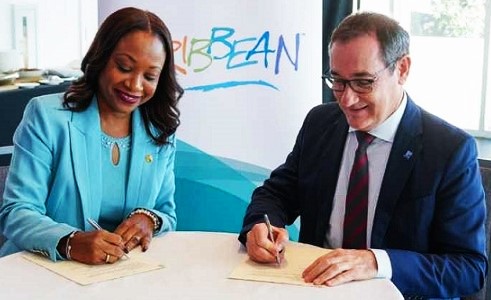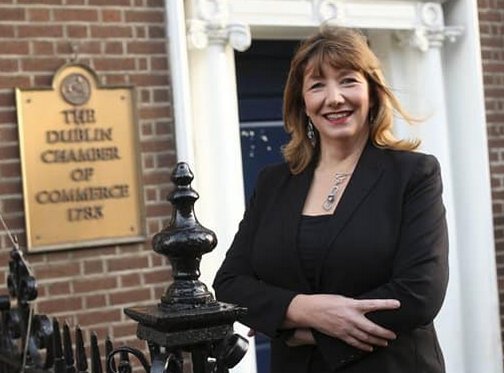A global expert on cities urged the West Midlands to “bang the drum” to ensure that the area made the best of devolution and an elected mayor. Alexandra Jones, chief executive of think-tank Centre for Cities was speaking at a Greater Birmingham Chambers of Commerce (GBCC) patrons’ lunch hosted by the Park Regis Hotel. She told leading business people: “You should be pushing the mayor, the combined authority and national government to deliver what is best for the region in the months ahead as Britain negotiates a new role in the world.
“It will be really important to contribute to the Government’s new industrial strategy and set out how national Government can best support West Midlands businesses. Investing in people and skills will be vital to future growth. So will making the most of Birmingham, one of the UK’s largest cities and one which has grown rapidly in recent years.
“Business has a huge role to play in making devolution a success. You should be spelling out, as a group, what priorities you think the mayor should have and what changes you would like to see that would help business thrive in the years ahead.”
“Mayors will matter not just because of their formal powers but also their ‘soft’ powers - to convene people and change conversations. When mayors invite people to lunch, they will come. Mayors have the ability to bang heads together and get organisations working together.”
Ms Jones added that devolution was about making the most of the West Midlands economy.
“The region needs to be clear that a big focus of devolution is making the most of businesses, supporting economic growth and sharing prosperity, and this should shape the activities of the mayor and combined authority.
“The West Midlands is not as well-known as it should be, despite its strengths and successes. Skills are a real issue for this area. One of your main challenges is making sure you have enough skilled people at all levels.
“Areas as big as Birmingham and Coventry should be more highly skilled than they are, particularly with the universities you have. You need to improve skills as that will make the area more attractive to businesses.
“Make sure transport in the area is improved and that you ensure that high profile national projects like HS2 are also an opportunity to improve local transport. And ensure that you make the most of the opportunities for innovation that cities with lots of universities and knowledge intensive businesses offer.
“You have made a lot of progress on working in partnership and gaining devolution in a short space of time. From May the West Midlands will have greater control over transport, roads and housing and other areas. You are in a good position to make the most of this to support growth in the years ahead.
“As businesses, you should think about how you make the most of devolution to support growth and ensure you bang the drum in setting out your expectations of the elected mayor. There are huge opportunities for the mayor, who will have a mandate from the whole electorate, to make a big difference to growth in the local area.”
Ms Jones said that the West Midlands should learn from other areas, in the UK and around the world. For example, Greater Manchester’s long term partnership, across local authorities and with the private sector, had benefitted from sharing a clear vision and ambition for the area, and developing a strong shared evidence base from which to work.
Paul Faulkner, chief executive of the GBCC, said: “Devolution, mayors, combined authorities and the future of UK cities post-Brexit are all topics of the moment. As Alexandra said, being clear with the future Mayor what we want is hugely important.
“That is why we will be launching Business Priorities 2017: Vision for a West Midlands Combined Authority Mayor in partnership with the Black Country and Coventry & Warwickshire Chambers of Commerce in March 2017.
“Alexandra is a globally recognised expert on the subject and we were delighted to hear from her and to discuss the key issues of the day with our Patrons.”
GBCC Patrons are among the great and the good of local businesses, encompassing iconic brands and local leaders. The group is capped at maximum of 36 patrons at any one time. There is currently an opening in the Patronage scheme.
Mr Faulkner added: “We are excited to be starting our search for the next GBCC Patron. Patrons are some of the most high profile and innovative companies working in the city-region.
“Patronage is the most intensive, value adding form of membership at the Chambers.
“We cap Patronage at 36 Patrons at any one time so this is a golden opportunity for firms looking to engage.
“We want to use this opportunity get to know more of the movers and shakers, new investors, hidden gems and up and coming businesses in the city-region.”
















